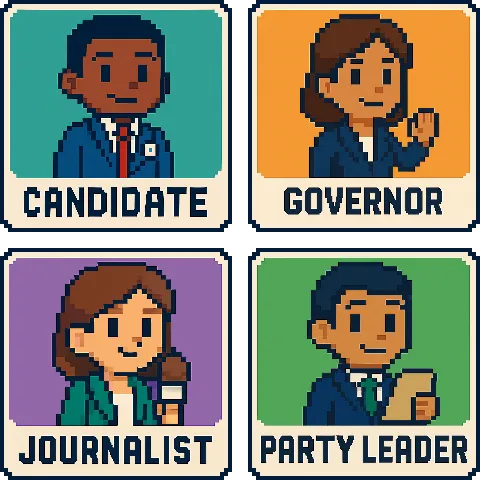In The Civics Game, every student chooses a role and plays an active part in local democracy.
From the first day, you join a classroom city where your role grows as you learn, campaign, and collaborate with classmates. Each position has real responsibilities — and every one matters.

The Roles You Can Play
When you choose your role in The Civics Game, you’ll take on challenges that mirror real-world civic leadership.

Citizen
The starting point for everyone. As a Citizen, you learn the basics of civic life — voting, discussing issues, and helping shape your classroom community. Citizens are the heart of the game: they propose ideas, vote in elections, and hold leaders accountable.

Journalist
Journalists keep the game honest. They interview candidates, report on debates, and publish news that shapes public opinion. A sharp story can change the outcome of an election.

Candidate
Candidates step forward to represent their classmates in elections for Council Member or Mayor. They campaign, debate, and persuade voters with practical ideas to improve their classroom city.

Party Organizer
Party Organizers coordinate party members or coalitions around shared ideas. They help plan campaigns, prepare debates, and encourage collaboration between Citizens and Candidates.

Council Member
Elected by classmates, Council Members write, debate, and vote on ordinances — the rules that guide your classroom city. They work together to improve how the city operates and make sure every student’s voice is heard.

Mayor
The highest role in your classroom city. The Mayor leads council meetings, signs or vetoes ordinances, and represents the whole student body. Winning this office means mastering the art of local leadership and collaboration.
Everyone’s Role Matters
No matter which path you take, every role helps your classroom city run. You’ll practice leadership, communication, teamwork, and critical thinking — all while learning how local democracy really works.